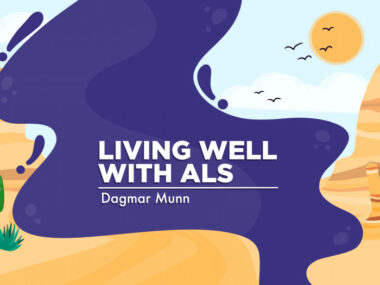Finding moments of warmth during the winter of ALS
I'm applying something I learned about winter moods to life with ALS
Written by |

I recently listened to a podcast called “The Art of Manliness.” The episode was titled “The Winter Mindset — How Norwegians Love the Winter (And You Can Too).” I could relate, because I live in a northern climate that receives over 200 inches of snow each year.
Winters in Michigan’s Upper Peninsula often start with snow in November, or even October, and it doesn’t melt until April or May. Upper Peninsula winters are hard, and snow removal takes a lot of time and energy. On the winter solstice, the sun sets just after 5 p.m., followed by 15 hours of darkness. Daytime skies are often overcast with snow flurries. I try to embrace the season by cross-country skiing, but even with that I’m ready for spring weeks before it arrives.
“The Art of Manliness” podcast featured Kari Leibowitz, a health psychologist and the author of “How to Winter: Harness Your Mindset to Thrive on Cold, Dark, or Difficult Days.” She’s studied why people in the Arctic — where the sun doesn’t rise for two months — don’t suffer from seasonal depression at the rates one might expect.
Leibowitz discussed how Arctic residents adapt their behavior, sleep patterns, and social lives seasonally. In less extreme climates, we often see increased fatigue, or a need for more sleep in winter, as a problem. But in the far north, these changes aren’t seen as problematic — they’re simply necessary.
As I listened, I thought about how this concept relates to life with ALS.
What is ‘intentional noticing’?
In a sense, my husband, Todd, and I are living in perpetual winter under the constant cloud of his ALS diagnosis and disease progression. Managing ALS takes enormous time and energy, and it’s hard to get out of the house. Yet, just like people living in the Arctic, some adapt better than others to living with ALS.
When Todd was in the earlier stages of ALS, we pushed for normalcy. We went on trips, even though they were difficult. We attended hockey games, ate at restaurants, and tried to hold on to other remnants of the life we had before Todd lost his independence. But eventually, leaving the house became so hard that we built a life centered on our home. We bought a projector for family movie nights. A friend gave me an elliptical machine she no longer wanted so I could exercise without going to the gym.
Leibowitz spoke about shifting our attention with “intentional noticing.” She asked: “What things do you like about winter and how can you attend to that more?” By way of example, she described savoring a hot cup of tea or coffee on a cold day or relishing the warmth when stepping inside after a short winter walk.
With ALS, the same mindset applies. While I would never ask someone what they like about ALS, I can ask questions that help me shift my attention to the good that remains in the midst of so much loss.
For example: “What do I like about my spouse?” I like that Todd takes an interest in current events and enjoys discussing them. I like that he still helps me parent, tracks our finances, and coaches our son and me on how to do household repairs.
“What do I like about my house?” Because we spend so much time at home, this question helps me appreciate where we are rather than resent it. I like our sauna and how every evening the heat warms me to my core. It’s so relaxing.
Leibowitz made another insightful point that in winter, we often blame the season for any discomfort we feel. When it’s summer and we’re sad, we don’t blame the sun. But in winter, it’s easy to use the season as a scapegoat.
I do the same thing with ALS. I experienced unpleasant emotions before Todd’s diagnosis, but now ALS often gets the blame. If I’m overwhelmed, frustrated, or sad, it all comes back to Todd having ALS. But these emotions are part of every human experience, and if Todd hadn’t gotten ALS, I would’ve experienced some of them in other areas of life.
In both winter and ALS, there are lessons in learning to adapt, shifting one’s attention, and finding moments of warmth amid the cold.
Note: ALS News Today is strictly a news and information website about the disease. It does not provide medical advice, diagnosis, or treatment. This content is not intended to be a substitute for professional medical advice, diagnosis, or treatment. Always seek the advice of your physician or other qualified health provider with any questions you may have regarding a medical condition. Never disregard professional medical advice or delay in seeking it because of something you have read on this website. The opinions expressed in this column are not those of ALS News Today or its parent company, Bionews, and are intended to spark discussion about issues pertaining to ALS.







Lynn Anderson
Kristin, That’s another great article. Lots to think about there. I love the questions you posed. I’m going to incorporate them into my next luncheon with the ladies from church. Thanks for sharing. I love to read your articles. We’ll be praying that you are able to keep a positive outlook on both your winters.